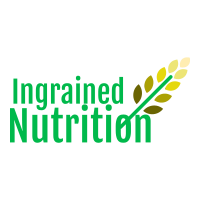Nutrition and immunity: this is a topic we talk to clients about a lot, especially in the lead up to winter flu season. Did you know that there are specific nutrients that are essential to our immune system? Without these, our bodies can’t fight off bacteria and...
Low FODMAP for Irritable Bowel Syndrome: how can the low FODMAP diet help?
by Peta Cullis | Diets, Managing conditions
Irritable bowel syndrome, or IBS, is a group of functional bowel disorders. It causes symptoms of bloating and distention, increased passing of wind, and altered bowel habits such as diarrhoea or constipation. For years, people were told this was “just they way they...
A Dive into Digestive Enzymes
by Caitlin Scane | Food insights, Managing conditions
What Are Digestive Enzymes? They are a protein naturally produced in the gastrointestinal tract produced by the body to break food down into smaller particles or molecules so they can then be digested used as energy in the body. Most of the time, taking digestive...
Waist Measurements: How to Do it Right & What Does it Mean for Your Health?
by Peta Cullis | Managing conditions
Waist circumference is a valid measure of fat distribution and disease risk. Taking waist circumference is a simple way to measure health risk for chronic disease in addition to other factors. Fat in the abdominal area is largely visceral fat, deep within the...
Your Guide on What to Eat for Managing Endometriosis
by Peta Cullis | Managing conditions, Women's health
Last week Australia shined a spotlight on International women’s day (Whop Whop!) and with March being National Endometriosis awareness month, we thought we would highlight the ever confusing condition: Endometriosis. This complex condition is poorly understood. With...
How to Manage a Poor Appetite & Malnutrition
by Caitlin Scane | Families, Managing conditions
Meeting nutrient and energy requirements when appetite is low can be difficult and often results in unintentional weight loss. Some reasons appetite may be reduced can be: nausea, medication changes, illness, chewing or swallowing difficulties, depression and anxiety...
Managing Constipation
by Caitlin Scane | Managing conditions
Constipation is a common problem that affects around 1 in 7 people. Constipation is the passing of hard, dry bowel motions (stools) that may be infrequent or difficult to pass. The most common causes of constipation include a change in routine, medications, not enough...
Navigating Weight and Other Nutrition Changes in Menopause
by Caitlin Scane | Managing conditions, Women's health
Menopause is the name given to the period in a women’s life where menstruation stops. This usually occurs around the age of 45-55 and is associated with the end of fertility and hormone changes which can cause a range of side effects with some women suffering more...
All About Iron Deficiency
by Peta Cullis | Managing conditions, Pregnancy tips, Women's health
It’s national iron awareness week! Most of us know we need iron but do you know what it does? Why do some people have too much while other people struggle to get enough? Keep reading for all the answers. What is Iron and why do we need it? Iron is needed used by all...
Dietitians Caitlin and Laura discuss diabetes burnout & being a health professional with diabetes
by Caitlin Scane | Managing conditions
Because it is national diabetes week, we thought we would take the opportunity to sit down with Laura. Laura is a new graduate dietitian who started working with us at the beginning of the year. She lives with type 1 diabetes so we thought we would gain some insight...
Find the advice you need
Browse by categories
Browse tags
appetite1 beverages2 breakfast1 children4 chocolate1 diagnosed conditions2 dinner4 elimination diets1 energy1 enzymes2 family nutrition6 Feeding Therapy1 fish1 FODMAP1 food shopping1 fussy eating1 gluten free1 healthy eating7 immunity1 irritable bowel syndrom1 lactose free1 lunch1 malnutrition1 paediatric nutrition2 probiotics1 problem feeding3 quick food6 salad1 snacks3 supplements1 suppliments1 vegan1 vegetarian5 vitamins1 weight management3










